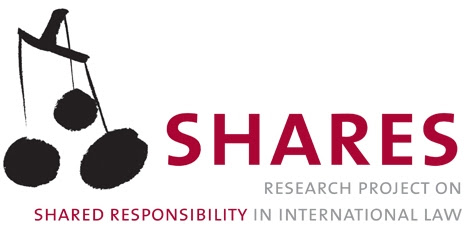Posted by: Jacobs Dov
Cross-posted on Spreading the Jam
Ivory Coast is quickly becoming a political nightmare. Indeed, with the evidence of crimes being committed by Gbagbo forces, as well as by Ouattara’s supporters, the international community is faced with a dilemna: if it turns out that Ouattara is indeed condoning such actions, how can he be supported by the world community, if it is to be consistent with calls for removal of other leaders who have alledgedly been involved in such situations, such as Khadafi in Libya? The result of such consistency would however be a political vaccum that might create more chaos in the country.
Beyond this political dimension, the situation raises interesting issues of Shared Responsibility. In her previous post, Bérénice considered the Shared Responsibility of France and the UN in Ivory Coast. One issue that needs to be considered in addition to that is the question of the responsibility for the crimes being committed on the ground, by both sides, which is even more complex.
Indeed, this is a case of Shared Responsibility which involves several types of entities, several levels of responsibility and types of obligations from various areas of law.
The first level is obviously the individual responsibility of those committing the crimes, which would arguably fall under several categories of International Criminal Law (ICL), whether under the war crimes of the crimes against humanity label. Still within ICL is the command responsibility of the military, but also civil, leaders.
The second level requires looking at the entities to whom those crimes can be attributed. Interestingly, because Ouattara has been recognised by the entire international community as the legitimate representative of Ivory Coast, you can argue that the State Responsibility of Ivory Coast could be invoked. Also, and to make things even more interesting, it appears that mercenaries from other countries, more particularly Liberia, are involved. Depending on the facts, this could give rise to either direct responsibility of Liberia, should it be wilfully supporting the mercenaries, or, alternatively, failure to exercise due diligence, at least over its own territory and borders, if it could have prevented such a situation.
The third level is that of the responsibility of external entities, more particularly France and the UN, not only for their actions as considered by Bérénice, but also for actions by the parties to the conflict. The first angle that one could adopt, is their failure to exercise its responsibility to protect, as an emerging, but strongly debated and contested, norm of international law. Should the actions fall under genocide (there is some evidence that specific tribes are being targetted), it could trigger the specific duty to prevent that was recognised (if haphazardly applied) by the ICJ in the Genocide Case (PDF) in relation to Serbia. The second possible angle is complicity. Indeed, this might seem a little far fetched, but to the extent that the international community has been positively supporting Ouattara, not only politically, but also militarily, by targetting exclusively Gbagbo forces, couldn’t it be seen as an active participant in the conflict (I have argued elsewhere against the fiction of neutral external intervention), and therefore be help responsible if the party it supports commits crimes that were foreseeable? this certainly raises issues of knowledge and intent which, under their current definition in international might not cover such situations, but the question should at least be considered.
